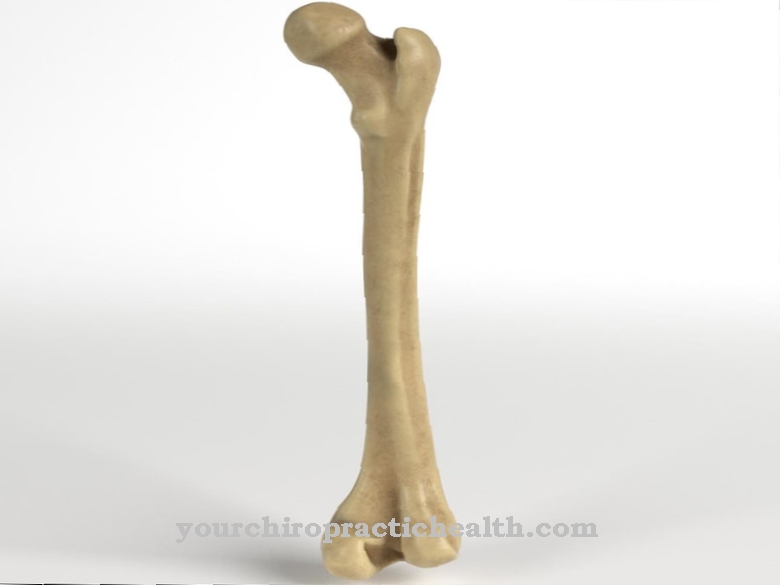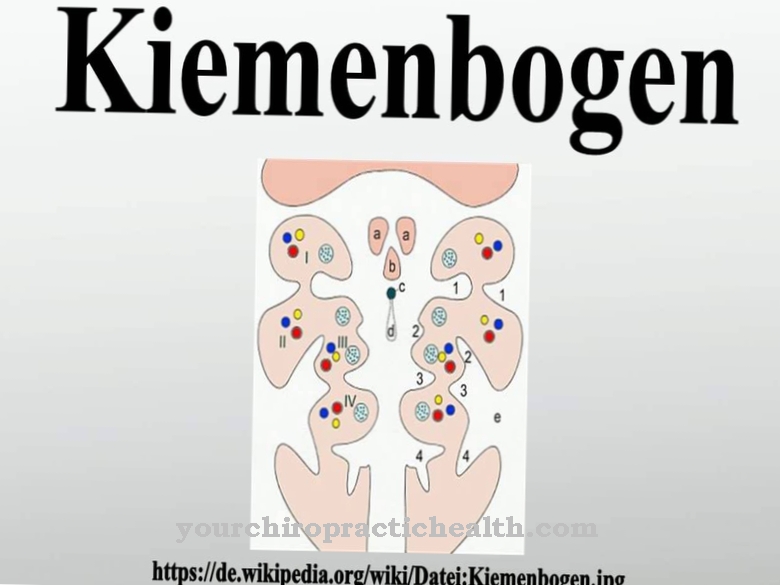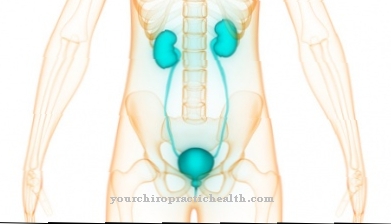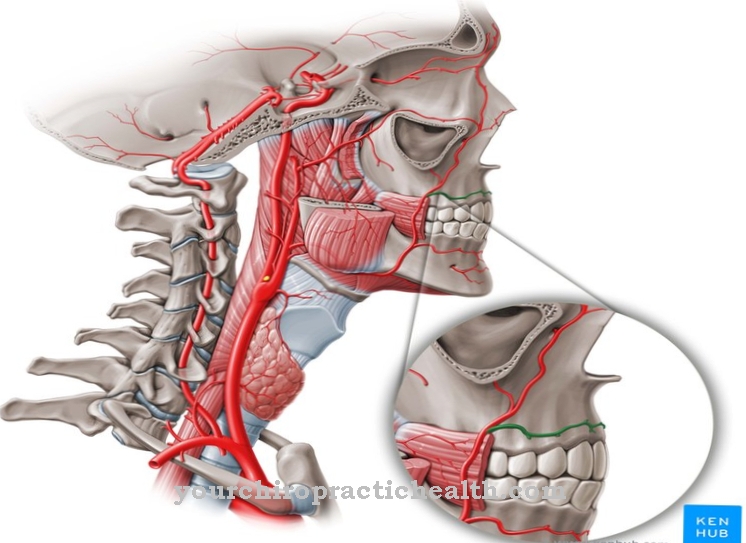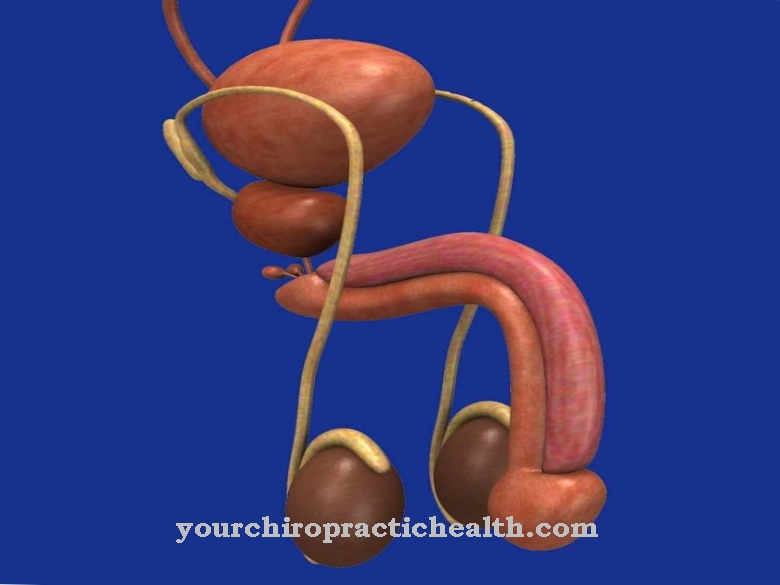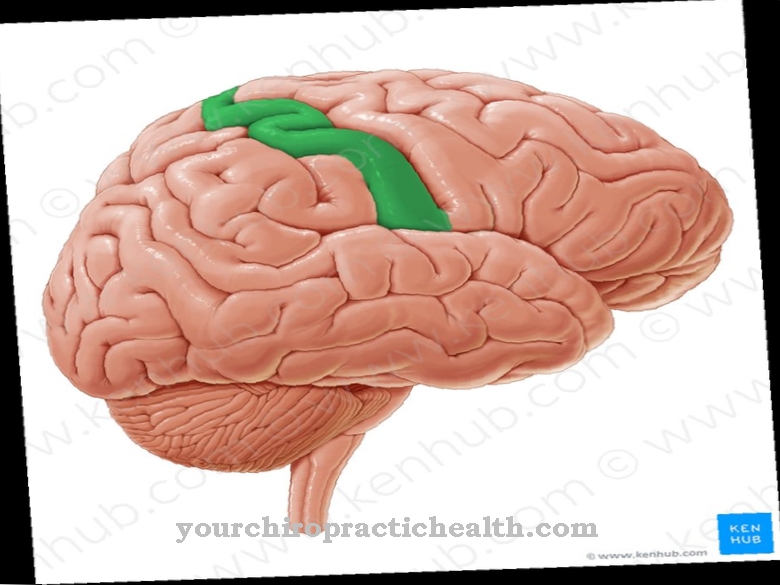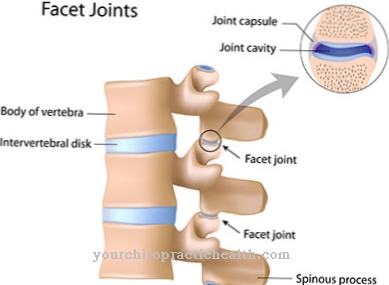The Dejerine-Spiller Syndrome is a brainstem syndrome that belongs to the medulla oblongata syndromes and is characterized by alternating paralysis symptoms. Due to an arterial occlusion, the patients suffer from paralysis of the tongue, which is associated with hemiplegia and sensory disorders on the other side of the body.
What is Dejerine-Spiller Syndrome?

© HANK GREBE - stock.adobe.com
The medulla oblongata corresponds to the elongated medulla and thus the most caudal part of the brain. The structure is one of the brainstem structures and is an important part of the central nervous system. The complete failure of the medulla oblongata usually leads to death.
The structure contains important reflex centers and vegetative functions such as the respiratory function or the blood circulation functions. Reflexes such as the sneeze, vomit and swallow reflex are also located in the medulla oblongata. In addition to the medulla oblongata, the brain stem includes the midbrain and the bridge. Partial failures of the brainstem structures are known as brainstem syndromes.
The brainstem syndromes are characterized by alternating symptoms and, depending on the location of the damage, are divided into alternating pons, alternating midbrain and alternating medulla oblongata syndromes.
In addition to Jackson syndrome and Vernet syndrome, Dejerine-Spiller syndrome corresponds to an alternating medulla oblongata syndrome. Of the ten classic medulla oblongata syndromes, Dejerine-Spiller syndrome is one of the more severe symptoms, the alternating paralysis of which was first described by the neurologists Spiller and Dejerine at the beginning of the 20th century.
causes
Like all brain stem syndromes, Dejerine-Spiller syndrome is caused by lesions in the area of the brain stem. The exact localization of the medulla oblongata syndrome is the elongated marrow. Different conditions and disease events can result in injuries to parts of the brain.
In the case of Dejerine-Spiller syndrome, the primary cause of the individual symptoms is usually an artery obstruction. Arteries carry oxygen-rich blood. In the human body, the blood corresponds to a transport medium that not only supplies the tissues with vital oxygen, but also with nutrients and messenger substances. The cerebral arteries provide the brain with oxygen and nutrients.
Occlusion of these arteries leads to ischemia and nutrient deficiencies within the brain. If the nutrient and oxygen supply is interrupted, cells automatically die. This cell death has serious consequences, especially in the area of the brain, and can cause severe functional impairments.
The arterial occlusion symptoms of Dejerine-Spiller syndrome are mostly in the anterior or vertebral spinal artery. From a pathophysiological point of view, there is a medial medulla oblongata lesion, a failure of the nucleus nervi hypoglossi and a lesion of the lemniscus medialis. A lesion of the basal pyramidal tract can also occur.
Symptoms, ailments & signs
Patients with Dejerine-Spiller syndrome have a complex of several symptoms. The syndrome is typically characterized by alternating symptoms of paralysis. The left half of the brain is known to control the right half of the body and vice versa.
However, this does not apply to the area of the cranial nerves. If the cranial nerves are damaged, the failure is not noticeable on the opposite side of the actual lesion, but on the same side. In Dejerine-Spiller syndrome, paralysis of the tongue occurs on the same side of the damage.
The opposite side of the body shows hemiplegia. In most cases, more or less severe sensory disturbances occur on the side of the hemiplegia. The motor failures of the tongue usually lead to a limitation of the ability to express or speak.
In addition, paralysis of the tongue can be associated with swallowing disorders or other problems with eating. The severity of the patient's deficits depends on the duration of the arterial occlusion that is the cause and thus the length of time the oxygen supply is insufficient.
diagnosis
The neurologist diagnoses Dejerine-Spiller syndrome using clinical symptoms and additional brain imaging. The slice images show lesions in the area of the elongated medulla, which can be more or less pronounced. In terms of differential diagnosis, the syndrome must be differentiated from related medulla oblongata syndromes.
In addition, causes such as tumors and autoimmune and bacterial inflammation must be excluded for the failure symptoms. The prognosis for patients with Dejerine-Spiller syndrome is relatively poor. A complete regeneration does not occur in many cases.
Complications
Because of the Dejerine-Spiller syndrome, various paralysis occurs in the patient. In many cases, the tongue is primarily affected by paralysis. This leads to language disorders and comprehension problems. Targeted communication is often not possible for the patient.
Other extremities or parts of the body can also be paralyzed, which can lead to severe sensitivity disorders and perception disorders. It is not possible for the patient to lead an ordinary everyday life. Often this person depends on the help of other people and suffers from depression and other psychological complaints.
It is not uncommon for them to be excluded from society. The paralysis of the tongue can also cause difficulty swallowing, which can also lead to an underweight. Ordinary food intake and fluid intake are also no longer possible. The Dejerine-Spiller syndrome cannot be completely treated.
For this reason, symptoms are restricted so that the patient can eat and express himself normally again. This treatment usually takes the form of therapy and does not lead to any further complaints or complications. However, in many cases it is not possible to completely limit Dejerine-Spiller syndrome, so that the patient has to live with the restrictions his entire life.
When should you go to the doctor?
Since Dejerine-Spiller syndrome does not heal itself, a doctor must be consulted in any case. As a rule, the syndrome is also not diagnosed immediately after birth, so a diagnosis must be made by a doctor in any case. The doctor should then be seen if the patient suffers from facial paralysis from time to time. This paralysis is not permanent and can affect the tongue or other muscles in the face, for example. Often only one side of the face is paralyzed.
If this paralysis occurs frequently, a doctor must be consulted in any case. Difficulty swallowing can also indicate this syndrome. In severe cases, the syndrome can also result in loss of consciousness and an emergency doctor should be called. The first diagnosis can be made by a general practitioner. In the treatment, however, various therapies are used that can make the complaints lids. Speech therapy is also very useful in the case of paralysis of the tongue and can normalize development again, especially in children.
Doctors & therapists in your area
Treatment & Therapy
Causal therapy is not available for patients with medulla oblongata syndromes.Patients with Dejerine-Spiller syndrome receive purely symptomatic supportive treatment that does not affect the actual cause. The most important therapeutic measures are physiotherapy and occupational therapy.
The nerve tissue within the brain is highly specialized. For this reason, the tissue of the central nervous system has only limited regenerative capacity. Although the damaged areas of the brain can no longer fully function, patients with symptoms of brain lesions can compensate for their deficits through consistent training in individual cases.
This compensation is achieved through the transfer of functions from the damaged brain areas to healthy brain tissue. The hemiplegia of those affected can at least be improved through targeted physiotherapy by stimulating neighboring areas of the brain to take over functions from the damaged areas of the brain.
If the regeneration is not satisfactory, the patients learn how to deal with their motor failure symptoms on a daily basis in occupational therapy. In the company of occupational therapy, for example, they get to know aids such as rollators that make everyday life easier for them.
Since patients with Dejerine-Spiller syndrome also suffer from paralysis of the tongue, they also receive speech therapy sessions in addition to occupational and physiotherapeutic care. Speech therapy is particularly important in restoring patients' ability to express themselves and reducing their feelings of helplessness.
Outlook & forecast
With Dejerine-Spiller syndrome, those affected suffer from significant restrictions in their lives, which significantly reduce the quality of life. You are therefore always dependent on treatment, as this disease does not heal itself and the symptoms usually worsen.
The patients suffer from various motor and cognitive deficits and are therefore always dependent on the help of other people in their everyday life. There are disorders of sensitivity and also disorders of speech. Furthermore, swallowing difficulties can lead to difficulties in taking food and liquids. The severity of the symptoms in Dejerine-Spiller syndrome is heavily dependent on the interruption of the oxygen supply, so that no general prediction can be made here.
The therapy can usually only alleviate the symptoms of Dejerine-Spiller syndrome, but not completely cure it. There is therefore no positive course of the disease. The quality of life of the person affected can be increased again through various physiotherapy exercises. Whether Dejerine-Spiller syndrome will have a negative impact on patient life expectancy cannot generally be predicted.
prevention
Dejerine-Spiller syndrome can only be prevented to the extent that blockages of cerebral arteries can be prevented. In the context of the syndrome, the same preventive measures apply as far as possible as for strokes, circulatory disorders and cardiovascular disorders.
Aftercare
With Dejerine-Spiller syndrome, follow-up measures are usually very limited. Here, the affected person is first dependent on a quick diagnosis with subsequent treatment so that no further complications can occur. This also prevents the symptoms from worsening further. The earlier the Dejerine-Spiller syndrome is recognized and treated, the better the further course of this disease will usually be.
The disease is often treated with the help of physiotherapy. Many of the exercises from such a therapy can also be performed in your own home, which may accelerate healing. The support and loving care of the person affected by their own family or friends also has a positive effect on the course of the disease.
Many patients are also dependent on this support in their everyday life, although psychological support may be necessary. However, it is not uncommon for professional psychological help to be necessary in order to prevent depression or further psychological upsets. In some cases, Dejerine-Spiller syndrome also reduces the life expectancy of the person affected, although no general course of the disease can be predicted.
You can do that yourself
Dejerine-Spiller syndrome cannot currently be treated causally. At most, patients can take self-help measures aimed at alleviating the symptoms of the disease or coping better with everyday life.
Physiotherapy is almost always prescribed for those affected. Patients should seek out a physical therapist who has previous experience with the disease or a disorder with very similar symptoms. The training plan should also contain occupational therapy elements.
One of the most important self-help measures for patients is to consistently implement the training plan and to practice regularly. The physiotherapy measures are aimed at slowing down the breakdown of muscles in the paralyzed areas of the body and thus improving the motor skills or at least maintaining them for as long as possible. The sensory system also benefits from adequate physiotherapy.
Tongue paralysis is usually associated with difficulty speaking and eating. In these cases, patients should also consult a speech therapist. The ability to articulate can be significantly improved through targeted speaking exercises.
Tongue paralysis also usually has a significant impact on social interaction. In particular, patients who barely speak and cannot eat in company can quickly feel isolated. Membership in a self-help group can counteract this process. Many of these groups are active online. A psychologist should be consulted in the event of severe mental illness.

.jpg)

.jpg)

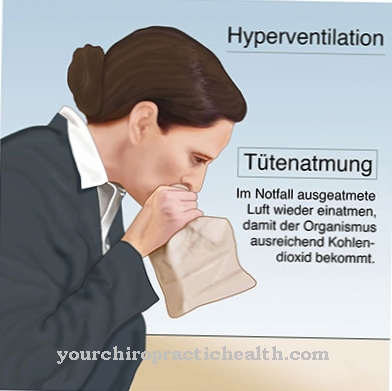
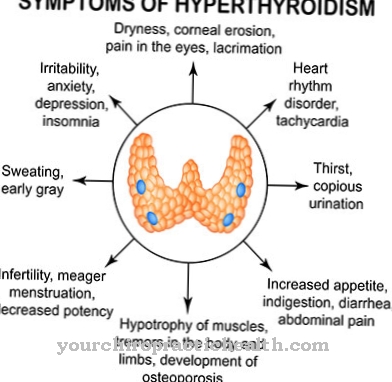

.jpg)



